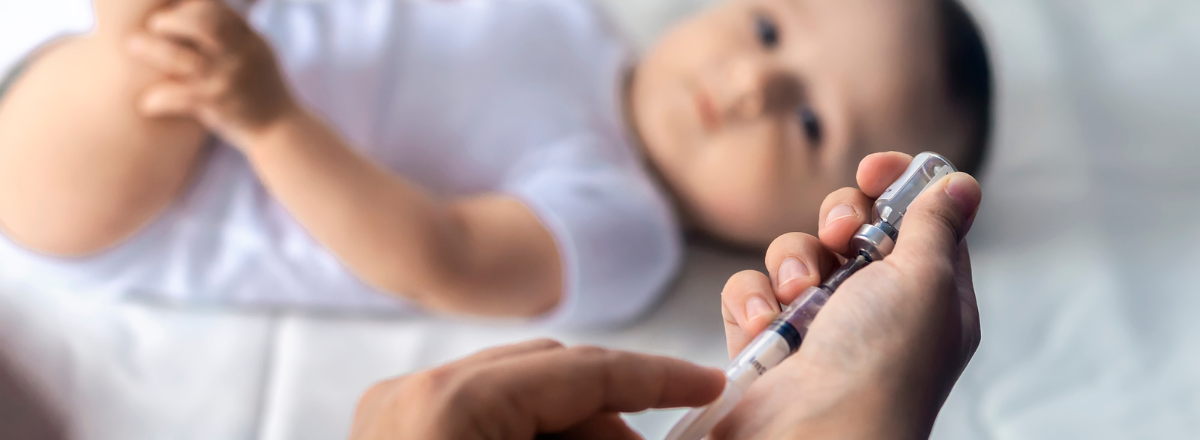Autism Spectrum Disorder, often referred to as autism or ASD, is thought to affect around 1 in 100 people in the UK. That’s approximately 700,000 people, according to the latest government figures.
However, the National Autistic Society thinks the true numbers are higher than these and wants a clearer, more accurate idea of how prevalent autism is, in order to help society understand the condition better and support those affected more effectively.
GPs are often the first port of call for those seeking an autism diagnosis and are well-trained in recognising characteristics of autism as well as understanding autistic patients’ needs, as ZoomDoc GP Dr Lydia Williamson explains.
‘As GPs we know what signs and symptoms could indicate autism in a patient and are the first step to getting them diagnosed, which is important in helping them to lead as full a life as possible. And, when a diagnosed patient comes to see us, we can be aware of their condition and sensitive to their needs. This may include talking slower, writing things down for them and offering support,’ she says.
Unfortunately there is a lot of misinformation and misunderstanding about autism, which means not everyone understands it fully. This can hinder the diagnosis process and mean those who need it aren’t getting the care and support they need to live their best life.
There’s no doubt autism is a complex condition affecting people in many different ways but understanding what it is and how to manage it is key.
That’s why as we approach World Autism Awareness Day (4th April) and World Autism Awareness Month (April), ZoomDoc wants to help raise awareness of the condition.
From the importance of getting diagnosed to quashing the myths surrounding autism, here’s what you need to know.
- Autism is not an illness

Autism is where your brain develops differently to non-autistic people. It is not an illness and there is no cure.
Although many people think of autism as an illness or disability, this is not the case.
‘ASD or autism is a condition that you’re born with and will have forever. It means your brain works in a different way to other people, often causing communication and social difficulties, which can range from mild to severe,’ says Dr Lydia.
Autism affects people in a variety of ways depending on whereabouts they are on the autism spectrum.
However, generally speaking, according to NHS information, autistic people may:
- find it hard to communicate and interact with other people
- find it hard to understand how other people think or feel
- find things like bright lights or loud noises overwhelming, stressful or uncomfortable
- get anxious or upset about unfamiliar situations and social events
- take longer to understand information
- do or think the same things over and over.
- There is no cure for autism

As autism is not a biological ‘thing’ in itself, it therefore cannot be cured, since a behavioural label is not a disease.
Autism is not an illness and therefore there is no cure, explains Dr Lydia.
‘As it’s not a medical condition there is no treatment or cure. However, getting a diagnosis is important to access support and ways to manage it. This can include speech therapy, occupational therapy or programmes to help with behaviour, communication and confidence,’ says Dr Lydia.
The NHS urges people not to fall for fake treatments that do claim to cure or treat autism, such as hormones, unlicensed injections, bleaching, supplements or extreme diets.
It also urges people to stay up to date with routine immunisations, which will protect against life-threatening diseases and are perfectly safe.
Keep reading for help and support with autism.
- Autism can be diagnosed at an early age

Early Intensive Behavioural Intervention (EIBI) is an evidence-based treatment approach used for young children diagnosed with autism spectrum disorder (ASD).
Autism alarm bells may ring at an early age if your baby or toddler doesn’t hit key developmental milestones with their expression, recognition or language. For instance, not babbling, making noise or starting to talk, particularly by the age of 2.
In older children, signs of autism can include:
- not responding to their name
- avoiding eye contact
- not smiling when you smile at them
- getting very upset if they do not like a certain taste, smell or sound
- repetitive movements, such as flapping their hands, flicking their fingers or rocking their body
- not talking as much as other children
- not doing as much pretend play
- repeating the same phrases.
‘Children develop at their own pace so if they’re not hitting development milestones as early as others, it is not necessarily something to worry about,’ says Dr Lydia.
‘However, if you are concerned about your baby, toddler or child’s development, do talk to your health visitor or flag these with your GP – trust your instinct,’ she says.
Getting an early diagnosis can actually be beneficial to your child and your whole family, too. Evidence shows early diagnosis can help access appropriate services and reduce stress. It can also lead to:
- more targeted interventions
- better social outcomes
- increased independence in adulthood.
Autism can of course be ignored, missed or misdiagnosed in childhood. If you suspect you may be autistic, talk to your GP about getting a referral for an autism assessment.
ZoomDoc GPs are available to talk to online at your own convenience. Download our app and make your appointment.
We can also provide same-day GP Referral letters here to help speed things up if you need a specialist appointment.
Get your GP Referral letter here
- Autism is not caused by the MMR vaccine
This rumour mill continues decades after the doctor who published unfounded ‘evidence’ (now discredited) was struck off.
To clarify, the NHS clearly states that there is currently no known cause of autism. It also confirms that it is:
- not caused by bad parenting
- not caused by vaccines, such as the MMR vaccine
- not linked to diet
- not an infection you can spread to other people.
‘Studies have found no evidence of a link between the MMR vaccine and autism,’ assures Dr Lydia. The National Autistic Society is also clear that there is no link between autism and any vaccine, adding that ‘evidence suggests that autism may be genetic.’
Be sure to only read reputable and evidence-based sources when understanding the condition. And of course, always talk to your doctor with any questions or concerns.
Read more about the importance of giving your child the MMR vaccine
- Autism help and support is available
The National Autistic Society – offers reliable information and support for autism.
Ambitious about Autism – helps autistic children and young people, champion their rights and create opportunities.
You can also find more help and support groups via the NHS.
Remember, that social media and chat forums can be helpful but can also be based on personal experience that is not necessarily supported by medical experts. The NHS warns that this ‘should not be taken as advice that would help you or your child.’

